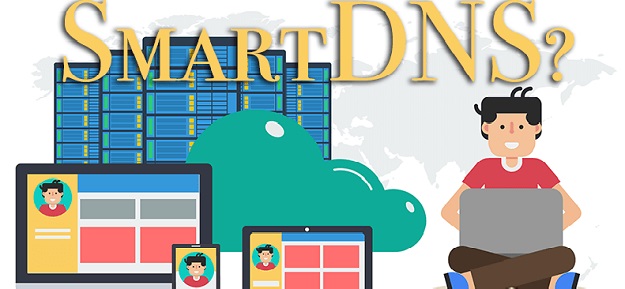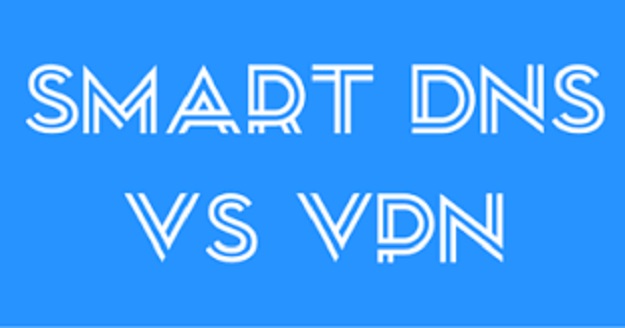One painful thing about the internet is when you need to access a website for important reasons, like to binge watch your favorite movies, download a file, or even shop for items you cannot find on other online stores, and then discover you do not have access because your country has been blocked from accessing the site. Different websites have their policies and also have their reasons why they put up geo-restrictions, most likely for security reasons. However, there is a way to go round it, a way to access restricted websites. One way of beating a website’s restriction is by using the Smart DNS.
Must Read –
5 Must Have Privacy Add-Ons for your Browser
The Security Benefits of Switching to a VPS
What is Smart DNS?

DNS is an abbreviation for Domain Name Server, and this can be likened to an internet directory where there is a list of domain names, then it translates these domain names to IP (Internet Protocol), and addresses. Domains are accessed using the website’s IP number to take you to the website that corresponds.
When you hear or see Smart DNS, there is the tendency for it to strike you as a term or feature that can be used only by computer geeks or wizards of the computer tech industry, and this is a common misconception. Smart DNS is used and can be used by just anyone; it is primarily used to gain access to geo-restricted websites, and it is able to achieve this by obtaining a user’s location data (geographical location) then going through the process of re-routing the data via a computer server run by the Smart DNS service provider.
The computer server is usually located in a region that has been granted access to the restricted websites; hence the user can also access the websites, from different parts of the world. The setting up of a Smart DNS does not require the installation of third-party software or applications. All that is required of the user is to effect a change to the DNS of the device being used, to establish a connection with a Smart DNS server whose location is the choice of the user.
Smart DNS versus VPN (Virtual Private Network)

Some people confuse these two, as they seem like they have the same functions of unblocking restricted websites. However, the two are really different. Depending on what you want and intend to achieve from a website, making decisions as to the right one to use can make a whole lot of difference, Just as you have it with subscribing to an online service, it is imperative that the user knows and understands the functions, features, and mode of operation of both a Smart DNS and VPN. Knowing what services each of them offers will better help you choice of which to use and for what service.
Smart DNS
If you are all about speed when using the internet, especially while trying to access unblocked sites from around the world, then the best choice for you is the Smart DNS. A Smart DNS is much faster, and costs less than a VPN, and is also really simple to use because the user does not have to setup any software to use. Online shoppers and Netflix lovers will find this service very appealing, as they are able to access content outside their region.
There is a major difference between the use of a Smart DNS vs VPN, and that difference is security. A Smart DNS does not come with an anonymity or privacy feature because it does not change the user’s IP; rather what it basically does is to change the traffic channel needed for detecting the user’s location, by altering the user’s DNS setting on the router or device, thereby making it a recommended tool for gaining access to geo-restricted content. By changing the channel for data transmission with the user’s geographical location using a Smart DNS server whose domain is located in that region where the access is coming from, the user then gets permission to access different types of content. Because there are no encryptions on Smart DNS, the connections are usually very fast.
VPN (Virtual Private Network)

While Smart DNS is known for its super fast connection, the VPN is known for anonymity and security while still having the unblocking feature the Smart DNS has. If you are more concerned about being anonymous and secure online, then a VPN is your best bet. A VPN allows for encrypted connections, which grants you privacy while granting you access to restricted websites. The encryption on the VPN is responsible for making the connection much slower than using a Smart DNS. Basically, a user with VPN enjoys total security while using the internet and it also grants the user 100% anonymity. Unlike a Smart DNS that does not require the installation of third-party software, the VPN requires other software installed on the device before it can function.
Read More – The Best VPN Services You Need to Know
How easy is the Smart DNS to Use?
After subscribing to a Smart DNS service, the user is left with configuring the Smart DNS on different devices of choice. Configuring the Smart DNS is pretty easy and straightforward, and does not need the user acquiring a special knowledge to successfully configure it and get it running.
Setting up a Smart DNS on your device takes about a minute, all that is needed is locating your internet setting on your device and changing the DNS addresses on the device with the one the Smart DNS provider gave you. The moment that is done, you will gain access to the geo-restricted content you could not access before. While setting up Smart DNS is fast and simple, the simplicity of the configuration, however, depends on the device used.
Using Smart DNS opens the portal to a whole new world of unrestricted, now you can visit that online store to buy that scarce product, or you can enjoy streaming from Netflix, including other restricted entertainment channels including your favorite sports games that regular cable prevent you from seeing.

